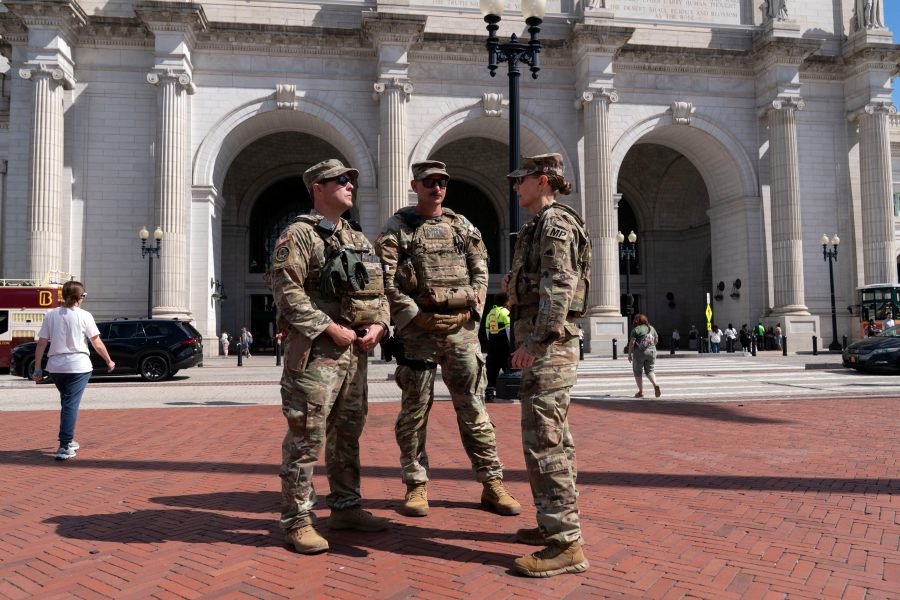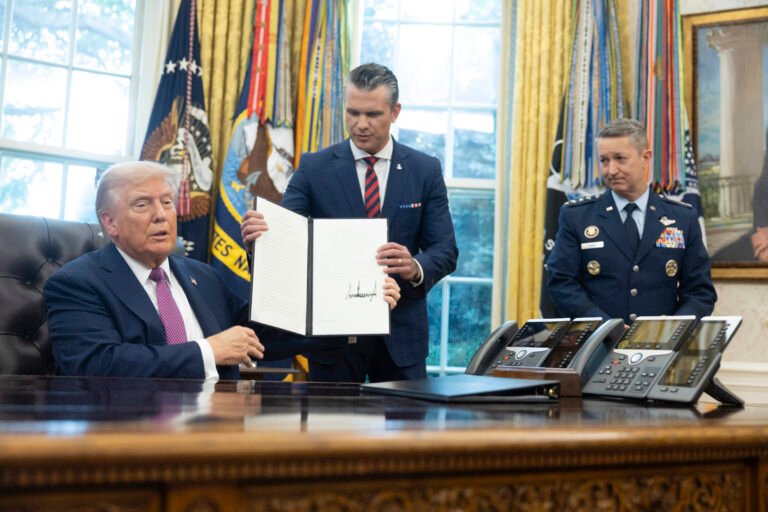
Two weeks ago, President Trump made the unprecedented decision to deploy the National Guard to Washington, D.C., and suggested he may do so in other cities. While the intention to address crime is understandable, this approach risks doing more harm than good—especially when crime is, in fact, declining in many places.
If the goal is to support cities in reducing crime and keeping communities safe, a more effective strategy would be to strengthen what’s already working at the local level, rather than overriding it. National Guard deployment should be reserved for genuine emergencies, not moments when local efforts are actually showing real results.
Take Washington, D.C. for example: violent crime has dropped significantly, with 2024 marking the lowest levels in three decades and further improvements in 2025. As of August, violent crime is down roughly 25 percent from the same time last year. This isn’t a fluke — it reflects disciplined, data-driven work by local leaders and law enforcement.
Mayor Bowser’s approach — focused policing, targeted prosecutions, youth programs, and community-based solutions — has contributed to meaningful progress.
And D.C. is not an outlier. Cities across the country, in coordination with law enforcement, are making similar strides: removing violent offenders and illegal weapons from the streets, investing in prevention, intervention, training, rehabilitation, and proving that public safety and community trust can go hand in hand.
That said, we know data isn’t everything. Carjackings, robberies, and gun violence still affect far too many families. No mayor is satisfied until every neighborhood is safe, and we are clear-eyed about the continued effort required.
This progress has been hard-won — and it’s fragile. Local leaders need strong partnerships with state and federal governments. If Washington wants to help, there are better ways than boots on the ground. Federal support for proven local strategies — whether through resources, coordination, or policy alignment — can strengthen our communities without undermining trust or local leadership. Here is how:
- Choke off the gun pipeline with stronger tracing, faster ballistic analysis, and crackdowns on traffickers supplying the bulk of crime guns. This means requiring every crime gun to be traced within 48 hours, fully staffing ATF’s crime labs so matches come back in days — not months — and aggressively prosecuting the small network of interstate traffickers who funnel weapons into our neighborhoods.
- Fund what works, including recruitment for community-focused police, youth programs, and jobs for young people most vulnerable. Cities need sustained resources to hire officers who walk beats, mediators and interrupters who defuse conflict before it turns violent, and employers willing to give vulnerable teens a paycheck and a path forward. They also need funding for social workers to assist with mental health issues, along with funding to invest in new technology as it relates to public safety.
- Support — not supplant — local leadership by fully funding federal strike forces against gun trafficking and violent groups. These strike forces, when led in coordination with local prosecutors and police, can dismantle the organized crews driving a disproportionate share of shootings. Washington’s role should be to bring in added resources, intelligence, and prosecutorial firepower, without sidelining the people closest to the problem and committed to the solution.
- Ban ghost guns and Glock switches, which are fueling deadly violence. Ghost guns have surged on our streets because they can be assembled without serial numbers, frustrating investigators — and shielding gun traffickers and dangerous individuals from accountability — because these weapons are largely untraceable. Similarly, Glock switches are increasingly recovered at crime scenes, which amplify the firepower of a handgun to turn it into essentially a much more deadly machine gun. If Washington can pass a national ban on these weapons and devices, it would help level the playing field for police and make our communities safer.
Additionally, we should reinstate Byrne Justice Assistance Grants, which help departments cover essentials like officer overtime. We should bring back Community Oriented Policing Services to support hiring trained officers who are focused on building trust and visibility in neighborhoods. And we should renew support for Project Safe Neighborhoods, a successful initiative that helps police and prosecutors coordinate in going after the small number of repeat offenders who commit the majority of violent crimes.
These are common-sense investments in public safety — and they get results.
What doesn’t work is sending in the National Guard when there is no emergency on the ground. Guardsmen and women serve an important role, but they are not trained for the day-to-day demands of community policing. Deploying troops into cities undercuts local law enforcement and can damage the very trust we rely on to reduce crime long-term.
Cities across the country are proving that results come from focus, coordination, financial resources, and community investment — not political theater. The federal government has a role to play, but that role should be supportive, not heavy-handed. Real progress happens when Washington partners with local leaders, not when it sidelines them.
Cleveland Mayor Justin M. Bibb, Atlanta Mayor Andre Dickens, Savannah Mayor Van R. Johnson II, Baltimore Mayor Brandon M. Scott, and Birmingham, Ala. Mayor Randall L. Woodfin are all members of the African American Mayors Association.


